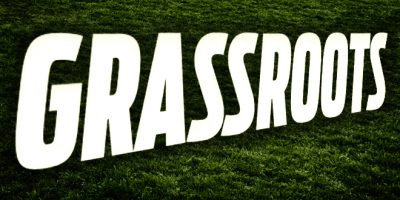
Woolston Rovers have long been among the most go-ahead of amateur clubs, and the Warrington outfit is setting the agenda yet again by forging a link with the Greek Rugby League.
Rovers will welcome players from Greece next year in an arrangement which will not only aid the World Cup preparations of Steve Georgallis, but which will also doubtlessly refresh the National Conference League Division Two club.
It’s one of those win-win situations that it’s pleasing to write about, especially as the visiting lads will be given the chance to obtain coaching qualifications.
That will certainly stand the Greece Rugby League in good stead in the long-term, while it was grand to hear that Woolston’s players and coaches will be invited to take part in the GRL’s domestic competition which, impressively, comprises some eight teams.
I’m regularly heartened by news of overseas developments, with the sport taking root in countries such as Norway and Holland which, back in the day, would in no way have been linked with Rugby League.
My only concern is that the spell-check on my computer could be in danger of exploding when I come to naming Woolston’s Greek players; I’ll just have to order extra supplies of WD40 I suppose. Hopefully the Covid-19 pandemic will have been blown away by next spring, and the link-up will become reality.
Something else that’s happily become reality, despite the impact of the coronavirus lockdown, is ongoing development work in schools.
The Rugby Football League stressed in its statement last week on renewed Government restrictions that activity can continue in schools.
The RFL’s Adam Hughes has confirmed that games cannot take place, which is fair enough. However, development work is fine and a number of clubs have wasted no time in arranging school visits.
There’s possibly a debate to be had, I suppose, as to whether such development work should really be handled by the Rugby Football League rather than by clubs but, in the meantime, it’s good to know that such as Hunslet (whose officer Michael Nuttall is building on previous work in the south Leeds suburbs of Middleton and Gildersome by mapping out an eight-month programme in Beeston) are highly active.
Hats off to such clubs for involving their local communities to such a significant degree; I’m sure that amateur outfits under Hunslet’s nurturing umbrella such as Beeston Broncos will benefit in both the short and the long term.
The name Beeston Broncos rolls off the tongue, doesn’t it? Alliterative monikers are often among those that work best, although I have to admit that the ones I prefer tend to be those that give more than a nod to history.
The name Wakefield Trinity, for example, reflects the fact that the club had links to a church based close to its ground at Belle Vue. Those who formed Bradford Northern, meanwhile, were making the very important statement that their club was firmly a Northern Union outfit, at a time when soccer was making strong inroads into the rugby stronghold of the West Riding, with inaugural champions Manningham and early giants Bradford having adopted the round ball code and becoming, respectively, Bradford City and Bradford Park Avenue.
For all the worthwhile razzmatazz that surrounded the switch to ‘Bulls’, I felt that something crucial was lost by ditching ‘Northern’.
When I was part of a group that formed Methley Royals we chose ‘Royals’ not because we were royalists, but as a nod to our then-base, the Royal Oak pub.
It’s aspects such as those that, to me, are important, which is why I still like to see some amateur clubs carry the word ‘Miners’ in their names, even though the pits have long gone – you might put such as Hull Dockers in a similar category.
I do have a fondness for Hill’s Hoists (one of those washing lines on a stick, if you don’t know, although I’ve referred to it from time to time over the years) which was adopted by those japesters at Hammersmith. And I like ‘Bears’, as used by Coventry. I strongly suspect it’s inspired by Lady Godiva, albeit using a different spelling of the actual word often used to describe her, the subsequent word leading, I suppose, to different marketing opportunities.
It’s when soubriquets don’t seem to have any direct relevance to a club that I can, unfortunately, run into problems. An example arose last week, when I hailed the launch of Bilton (formerly Sully’s) in Hull.
For some reason (possibly an early email, but I can’t be certain) I described the new incarnation as the Braves. Just to clarify for our readers, they’re not the Braves – they’re the Bears. And long may I be writing the proud name of Bilton Bears in League Express.
I was saddened to learn of the passing of southern Rugby League grassroots stalwart Tony Bottomley.
Tony, who died on Monday 9 November, served the amateur game with distinction for over half a century. The Chairman of the Southern Conference League in the 1980s, he was heavily involved with St Albans Centurions for many years. He was also a key figure in the introduction of youth Rugby League to Hertfordshire, the expansion of the sport in universities, and the launch of teams such as Elmbridge.
His funeral will take place on Wednesday (18 November, 4.00pm) at West Herts Crematorium, when St Albans players will act as pall bearers and other Centurions will form a guard of honour. His family, meanwhile, has opened a Just Giving page, with proceeds to be passed to the Rugby League Benevolent fund and Prostate Cancer charities.
A fuller tribute will be paid to Tony Bottomley in next week’s issue; we at League Express, meanwhile, offer our condolences to his family and friends.
The above content is also available in the regular weekly edition of League Express, on newsstands every Monday in the UK and as a digital download. Click here for more details.
